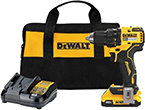Keep Your Home Free from Carbon Monoxide
Written by Lee Wyatt (last updated October 13, 2021)
Learning how to keep your home free from carbon monoxide isn't all that difficult, though it does take a few extra steps more than simply keeping your home safe from a fire. While many of the same procedures and steps that you use to protect a home from fire will work with carbon monoxide, the truth of the matter is that if you work it right, you can actually use carbon monoxide as an early warning system for a fire. Here are a few ideas that you can use to get started.
- Get a detector. One of the best and most traditional methods, for keeping your home free from carbon monoxide is to get a detector. Before you go and get a regular fire detector, you will want to make sure that you are purchasing a detector that will also detect carbon monoxide. While you don't have to get a detector that works for both fire, and carbon monoxide, it is a good idea to do so since it will be easier to maintain one alarm rather than two.
- Check all sources. There are several items within a home that can generate carbon monoxide, and as such need to be checked and maintained regularly. These items are appliances such as the furnace or boiler, your gas or fuel-oil water heater, a fireplace (both gas and wood), your stove and oven (if it is gas operated), and so on. Basically anything that involves some sort of combustion process (something burning in some way) needs to be checked to ensure it is operating the way that it should.
- Don't forget your chimney. Just because your fireplace is working correctly doesn't mean that the chimney is. Before you actually operate the fireplace, make sure that the chimney is in good working order and that the flue isn't rusted, streaking, or debris is falling down through the chimney. In fact, it would be a good idea to get your chimney cleaned prior to the start of each season that you use it.
- Use common sense. The simplest way to keep carbon monoxide from your home is to simply use a bit of common sense. This means that you need to not do some things that, while it may "sound like a good idea" are anything but. For example, do not heat your home using a gas stove, always ensure that you have a properly ventilated range hood on your stove, never use a charcoal grill inside, and never start your car or vehicle in the garage without the exterior door being opened first.
When you start utilizing these ideas, you should have a fairly safe home from both fire and carbon monoxide. That being said, it never hurts to get a professional's opinion. Often times you can contact your local fire department, and have them come out and do a safety inspection. It may cost a little bit of money to do this, but the peace of mind that you get from knowing that your home is certified safe from the fire department is pretty priceless.
Author Bio
Lee Wyatt
Contributor of numerous Tips.Net articles, Lee Wyatt is quickly becoming a regular "Jack of all trades." He is currently an independent contractor specializing in writing and editing. Contact him today for all of your writing and editing needs! Click here to contact. Learn more about Lee...
Installing Bathroom Cabinets
Instead of hiring an expensive carpenter to install you bathroom cabinets, why not save some money and do it yourself. ...
Discover More
Does My Car Use Shocks or Struts?
Chances are you can go into just about any mechanics garage across the country, and you will hear the question "Does my ...
Discover More
Making Your Own Pesto Sauce
Pesto sauce can be a great garnish, or even ingredient when you are in the mood for something special. Instead of buying ...
Discover More
More Home Improvement Tips
Installing a Smoke Detector
It is fairly easy to install a smoke detector, and most local fire codes mandate that you have smoke detectors working ...
Discover More
Home Safety Necessities
Have you ever noticed how there seems to be so many different home safety products there are today? Without some careful ...
Discover More
Troubleshooting Fire Alarms
Fire alarms are a necessary and essential element for a safe home. But what do you do when these vital safety devices ...
Discover More

Comments